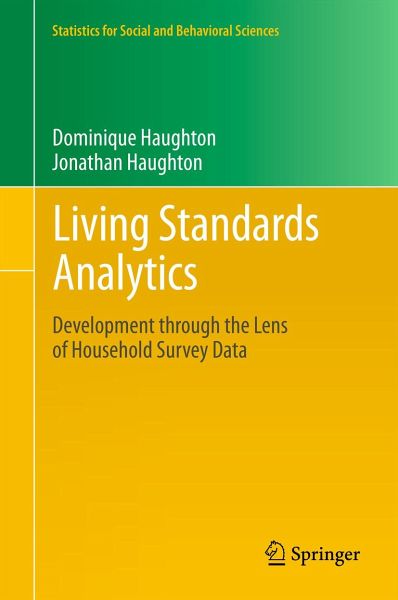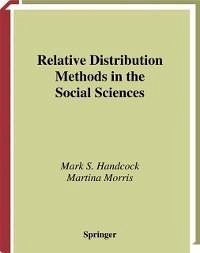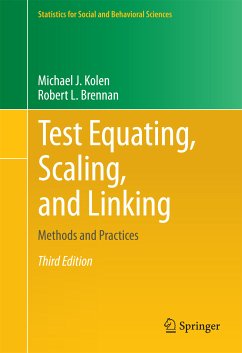
Living Standards Analytics (eBook, PDF)
Development through the Lens of Household Survey Data
Versandkostenfrei!
Sofort per Download lieferbar
40,95 €
inkl. MwSt.
Weitere Ausgaben:

PAYBACK Punkte
20 °P sammeln!
The purpose of this book is to introduce, discuss, illustrate, and evaluate the colorful palette of analytical techniques that can be applied to the analysis of household survey data, with an emphasis on the innovations of the past decade or so.Most of the chapters begin by introducing a methodological or policy problem, to motivate the subsequent discussion of relevant methods. They then summarize the relevant techniques, and draw on examples - many of them from the authors' own work - and aim to convey a sense of the potential, but also the strengths and weaknesses, of those techniques.This ...
The purpose of this book is to introduce, discuss, illustrate, and evaluate the colorful palette of analytical techniques that can be applied to the analysis of household survey data, with an emphasis on the innovations of the past decade or so.
Most of the chapters begin by introducing a methodological or policy problem, to motivate the subsequent discussion of relevant methods. They then summarize the relevant techniques, and draw on examples - many of them from the authors' own work - and aim to convey a sense of the potential, but also the strengths and weaknesses, of those techniques.
This book is meant for graduate students in statistics, economics, policy analysis, and social sciences, especially, but certainly not exclusively, those interested in the challenges of economic development in the Third World. Additionally, the book will be useful to academics and practitioners who work closely with survey data. This is a book that can serve as a reference work, to be taken down from the shelf and perused from time to time.
Dominique Haughton is Professor of Mathematical Sciences at Bentley University and Affiliated Researcher at Université Toulouse I.
Jonathan Haughton is Professor of Economics at Suffolk University and Senior Economist at the Beacon Hill Institute for Public Policy.
Most of the chapters begin by introducing a methodological or policy problem, to motivate the subsequent discussion of relevant methods. They then summarize the relevant techniques, and draw on examples - many of them from the authors' own work - and aim to convey a sense of the potential, but also the strengths and weaknesses, of those techniques.
This book is meant for graduate students in statistics, economics, policy analysis, and social sciences, especially, but certainly not exclusively, those interested in the challenges of economic development in the Third World. Additionally, the book will be useful to academics and practitioners who work closely with survey data. This is a book that can serve as a reference work, to be taken down from the shelf and perused from time to time.
Dominique Haughton is Professor of Mathematical Sciences at Bentley University and Affiliated Researcher at Université Toulouse I.
Jonathan Haughton is Professor of Economics at Suffolk University and Senior Economist at the Beacon Hill Institute for Public Policy.
Dieser Download kann aus rechtlichen Gründen nur mit Rechnungsadresse in A, B, BG, CY, CZ, D, DK, EW, E, FIN, F, GR, HR, H, IRL, I, LT, L, LR, M, NL, PL, P, R, S, SLO, SK ausgeliefert werden.













